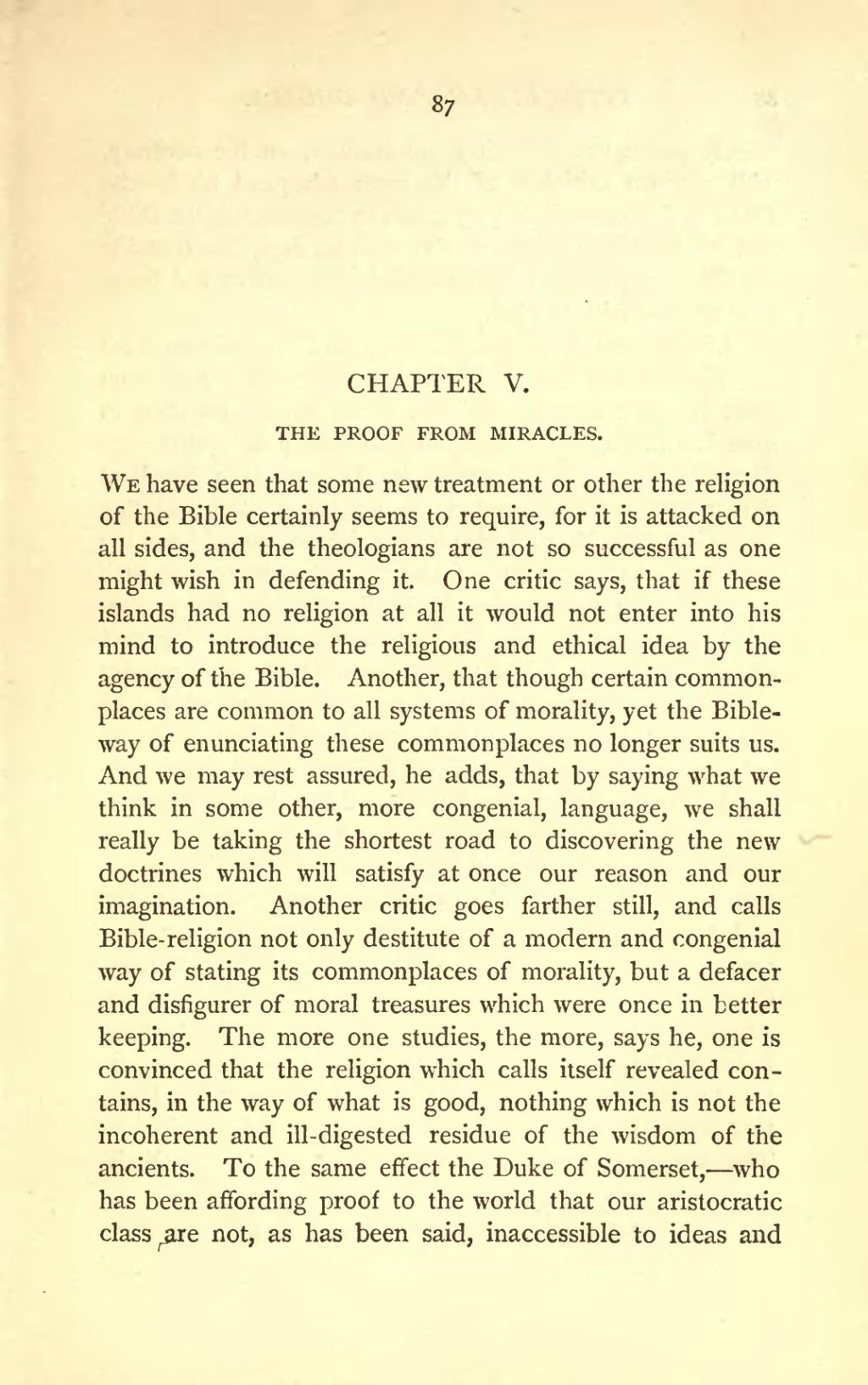CHAPTER V.
THE PROOF FROM MIRACLES.
We have seen that some new treatment or other the religion of the Bible certainly seems to require, for it is attacked on all sides, and the theologians are not so successful as one might wish in defending it. One critic says, that if these islands had no religion at all it would not enter into his mind to introduce the religious and ethical idea by the agency of the Bible. Another, that though certain common places are common to all systems of morality, yet the Bible-way of enunciating these commonplaces no longer suits us. And we may rest assured, he adds, that by saying what we think in some other, more congenial, language, we shall really be taking the shortest road to discovering the new doctrines which will satisfy at once our reason and our imagination. Another critic goes farther still, and calls Bible-religion not only destitute of a modern and congenial way of stating its commonplaces of morality, but a defacer and disfigurer of moral treasures which were once in better keeping. The more one studies, the more, says he, one is convinced that the religion which calls itself revealed contains, in the way of what is good, nothing which is not the incoherent and ill-digested residue of the wisdom of the ancients. To the same effect the Duke of Somerset,—who has been affording proof to the world that our aristocratic class are not, as has been said, inaccessible to ideas and
